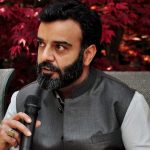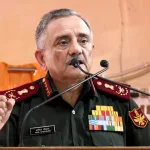The death of a Sri Lankan Navy (SLN) sailor when his vessel engaged with an Indian bottom-trawler from southern Tamil Nadu at mid-sea, has revived the fishers’ issue that has evaded a permanent solution for long. This, in turn, has reopened the internal Indian political discourse on the related ‘Katchchatheevu issue’, that too at the official-level between the Centre and the state. The issues have to be handled with greater sensitivity if the complexities have to be contained and do not become the single-most bilateral concern as they also involve human lives, people, and constituencies on both sides. The Sri Lankan police have arrested all 10 fishers in the Indian trawler and launched ‘homicide’ investigations. The Foreign Ministry in Colombo summoned an official from the Indian High Commission and registered a formal protest. The same was done by the Sri Lankan High Commission in New Delhi, with India’s Ministry of External Affairs (MEA). Otherwise antagonistic towards the Sri Lankan armed forces over the ‘ethnic war’ in the past, the Sri Lankan Tamil (SLT) fisher association leaders paid homage to the dead sailor in his home, down South. Fisheries Minister Douglas Devananda, who is also a Tamil leader from the North, was a pall-bearer at the sailor’s funeral, and said that ‘Tamil Nadu’s silence hampers a resolution to the fishers’ issue’. He said that he had taken up the larger fishers’ issue with visiting Indian External Affairs Minister (EAM) S Jaishankar recently, and wanted to travel to Tamil Nadu, to confer with Chief Minister M K Stalin. The sailor’s death has revived a controversy that has been raging for nearly six decades, with intermittent breaks, during the three-decade-long ethnic war in Sri Lanka. At the centre of it was the Indians’ indiscriminate and reckless use of high-speed bottom-trawlers and big-sized Purse seine nets, introduced on the Indian side but still banned in Sri Lanka. SLT fishers have all along complained that their deployment damaged their mechanised boats and gear, caused injuries to men and destroyed corals and other fish habitats forever. The end of the ethnic war in 2009 and the destruction of the dreaded LTTE’s ‘Sea Tigers’ fleet caused the SLT fishers’ return to native seas, where Indian counterparts had re-entered a few years earlier. Giving legal teeth to Sri Lankan accusations of ‘poaching’ was the more basic issue of Indian fishers crossing the International Maritime Boundary Line (IMBL), bilaterally agreed upon through two agreements in 1974 and 1976. Mandated to secure the nation’s sovereignty, territory and marine wealth, the SLN targeted Indian trawlers, at times leading to death and injuries to fishers, mainly from Tamil Nadu’s Rameswaram coast and Karaikkal enclave in the union territory of Puducherry. The conflicting sensitivities on both sides led to New Delhi and Colombo continuing their efforts to diffuse the situation and led to a joint statement issued at the end of bilateral talks in 2008. The statement acknowledged ‘humanitarian and livelihood dimensions’, and ‘agreed to put in place practical arrangements to deal with bona fide Indian and Sri Lankan fishermen crossing the IMBL’. The war was still raging in Sri Lanka, and the ‘practical arrangements’ included Colombo’s ‘designation’ of ‘sensitive areas along the Sri Lankan coastline’ and the Tamil Nadu government issuing permits for genuine fishing vessels and identity cards to fishers. On the livelihood front, the issue was still about Indian fishers’ ‘destructive fishing practices’. At fishers-level negotiations facilitated by the governments, Sri Lankan representatives laid down a pre-condition for meaningful negotiations—that their counterparts give up trawlers and Purse seine nets, which were also legally banned and strictly enforced in Sri Lanka. From the Indian side, the government of late Chief Minister Jayalalitha, in particular, stuck to the position that fishing was a ‘livelihood issue’ also for Tamil Nadu fishers, who had ‘traditional rights’ to access the ‘historic waters’. The construct derived from the state government’s position that the 1974 and 1976 accords that outlined the IMBL were legally flawed. However, the Centre clarified in the Supreme Court that no territory was ‘ceded’, which alone required parliamentary approval, as argued by chief ministers Jayalalithaa and M Karunanidhi, in their petitions filed in a private capacity while in the Opposition. The death of the two leaders, respectively in 2016 and 2018, has caused the ‘closure’ of their petitions. The fact that the delineation was possibly only one of a kind under bilateral/multilateral agreements signed between coastal nations across the world as a part of the first UN Convention on the Law of the Sea (UNCLOS) has not been adequately appreciated. India, in particular, was keen on denying access to third nations to those waters, which the deviation from the UNCLOS’ median-line principle facilitated in this case. Unlike understood or misunderstood in Tamil Nadu, owing to inadequate information, then and now, in return for the Katchchatheevu islet, India got ownership and possession of 10,000 sq. km minerals-rich Wadge Bank waters, off the southern-most Kanyakumari coast.
India & Sri Lanka Fishing in the Troubled Waters

Sign Up For Daily Newsletter
Be keep up! Get the latest breaking news delivered straight to your inbox.
By signing up, you agree to our Terms of Use and acknowledge the data practices in our Privacy Policy. You may unsubscribe at any time.
Leave a Comment Leave a Comment
Stay Connected
Latest News
Recent Posts
- Hazratbal must remain above controversy, a space of devotion not division: National Conference
- Talk of PSA in Hazratbal controversy adds insult to injury, foolish and unacceptable: Aga Ruhullah
- Border dispute with China biggest security challenge: CDS General Anil Chauhan
- DSEJ issues instructions regarding reopening of Schools, Resumption of Class Work
- “Inconsiderate, designed to hurt people’s sentiments”: CM Omar Abdullah slams J&K admin’s refusal to shift Eid-e-Milad holiday







